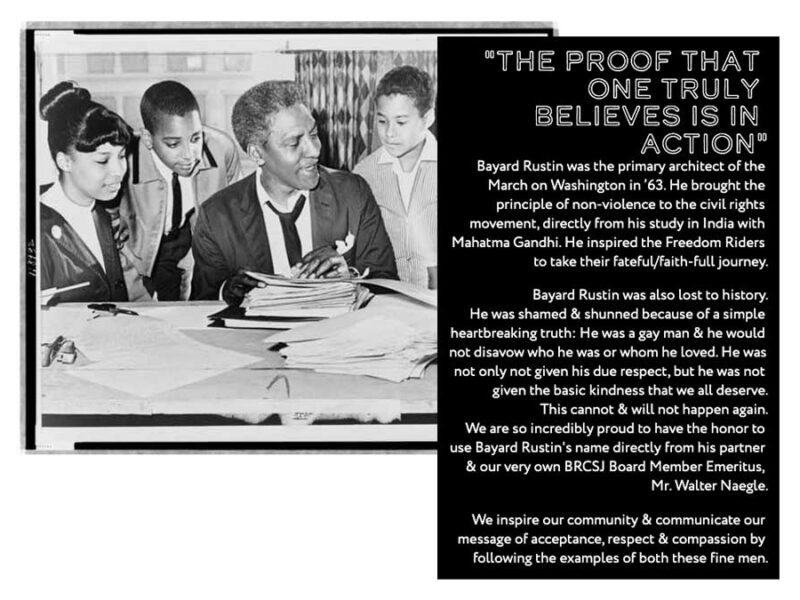The new Netflix film Rustin tells the long-overlooked story of Civil Rights leader Bayard Rustin, and an NJ Council for the Humanities-funded project at his namesake center in Princeton is sharing the spotlight.
Rustin’s legacy has long been under-examined in both popular and academic histories of the era, owing largely to his intersectional identity as a gay Black man. Recently, his legacy has been receiving long-overdue attention from historians and in popular media.
Among the efforts to bolster recognition of the late West Chester, PA, native have been a musical his imprisonment in Ashland, KY; new books including Bayard Rustin: A Legacy of Protest and Politics, edited by Michael G. Long; and the new film produced by Higher Ground Productions and directed by George C. Wolfe. The film is currently playing in select theaters and will be available on Netflix November 17.
Amid these high-profile efforts is a quieter but longer-term project to ensure historians and members of the public alike can study the intricacies of Rustin’s life and work. The Bayard Rustin Center for Social Justice, an LGBTQIA+ safe space, activist center, and educational resource based in Princeton, has been compiling the country’s first comprehensive archive of Rustin’s papers and ephemera, funded in part by a $15,000 action grant from NJCH.
The Center’s chief activist Robt Martin Seda-Schreiber discussed the project on Philadelphia’s 6ABC news, as well as an episode of ABC’s national documentary series Our America (above) and in the Philadelphia Inquirer.
“He never, never disavowed or denied who he loved and never, ever stepped back from who he was,” said Seda-Schreiber of Rustin. “He was absolutely purposefully left out.”
The Bayard Rustin Queer History archive is designed to be easily accessible to the public as well as valuable to researchers. In addition to the physical artifacts on display at the Center’s headquarters at 12 Stockton Street in Princeton, the archive includes an extensive digital repository of documents and a video library containing the reflections of individuals who knew and worked with Rustin.
The project has been aided by volunteer support from a number of institutions, including Princeton University and Swarthmore College. It has also been supported by Rustin’s surviving partner, Walter Naegle, who serves as a board member emeritus at the BRCSJ.
The Center has also worked to promote the other endeavors highlighting Rustin’s legacy including hosting a release party for Long’s book, to which Seda-Schreiber is a contributing author, and an advance screening of the film.
Read more about the Rustin Center in our Grantee Profile »
To keep up with updates about the archive and the Center’s other work, visit rustincenter.org or follow them on Instagram, X, or Facebook.



